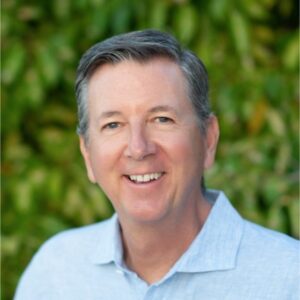5 Ways to Find Your Personal Leadership Brand
What if your life had a purpose… a particular purpose? There are almost 7.5 billion individuals alive right now. As far as I know, there are no duplicates. So, what if you were unique because you could make a difference that no one else can? What if you could make your difference every day, if you […]
Read Time
8 min read
Posted on
December 15, 2017
What if your life had a purpose… a particular purpose? There are almost 7.5 billion individuals alive right now. As far as I know, there are no duplicates.
So, what if you were unique because you could make a difference that no one else can? What if you could make your difference every day, if you were simply aware of what your difference is and looked at life as one giant opportunity to matter?
We know from decades of social research that people who adopt the view that life has a personal purpose are happier, healthier, live longer, experience less stress and have better relationships than people who stumble through life believing that they will find joy and satisfaction by achieving a never-ending succession of goals. Of course, we have no absolute way of knowing that life is purposeful but we do know that this belief leads to greater happiness than choosing to believe life is meaningless.
If you like this, subscribe here for more stories that Inspire The Future.
It’s true, we actually know the human mindset that produces self-respect and contentment. We also know what behaviors produce both inner joy and enjoyment of our outside world. But we have a major problem and it is this:
Our brain is in a constant wrestling match with primal urges and loud, insistent advice from people who claim to know what we should do.
Famed psychologist Jonathan Haidt describes a simple way to look at this inner battle for our identity. Imagine yourself holding the reins of a large carriage lead by two powerful horses. One horse is named Fears, the other horse is named Desires. These horses are very powerful and hate having bits in their mouths. They want to run wild but you know if they do your carriage is likely to end up tipped over in a ditch.
There is also a backseat in this carriage and it is filled with people you respect and love or have held authority in your life. Parents, teachers, coaches, friends, pastors and gurus are all yelling at you. They’re screaming at you, telling you both where to go and how to get there safely. There’s also one more distraction. You are guiding your carriage in a very modern world in which along roadsides, there are large video screens with very distracting messages. Most of them are telling you to turn at the next fork in the road to get to a new destination or buy something that the people on the video are sure you want.
The further you travel, the more you come to realize three things:
First, that the horses of Fear and Desire must be controlled or you will surely tip over. Second, the people yelling instructions may mean well, but they don’t know what the hell they’re talking about.
Third, the powerful messages broadcast from the roadside video boards are irrelevant, distracting and misleading. Following their directions will definitely take you in the wrong direction.
So, to find the self-respect we long for and fulfill the purpose we hope for, we must discover our deeper identity. We must become aware of who we are separate from our roles, our goals, our jobs, our achievements, our feelings, our current beliefs, our tribes. All these things are temporary. All these things can change. However, we have to find out if there is anything deeper? Do we have an “essential” self that wants to take the reins of our life?
That is the question that I try to help leaders answer. It is the most basic question of all:
Why do you want to lead?
What difference do you want to make? Are you a leader simply because you’re ambitious, want to make money, seek power, seek validation or is there something deeper?
I’ve become very aware of peoples’ inner voices as I have coached leaders to become more influential. It is terribly difficult to tear yourself away from the opinions of powerful others and our own inner goblins. But there is no other way to be the best version of you.
Here’s a process I take people through to find their inner voice and express their personal brand.
Learn To Engender Trust
Social research is clear that people who engender trust in others are the most personally fulfilled and most effective with others. Trust is primarily engendered by being authentic, pro-social and competent. Pro-social means that you are an advocate for the betterment of others. It is difficult for leaders of large organizations to be either authentic or pro-social today. That’s because Wall Street investors care nothing about either quality. In fact, they often admire leaders who are mercenary and willing to do whatever it takes to make money in the short term. I’ve been fortunate to work with many courageous leaders who figure out how to financially excel by being pro-social with their customers and employees. It’s possible to resist the corruption of your inner integrity, but I can attest it takes continuous clarity and strength. So I ask clients, “Are you ready to be authentic?” “Do you intrinsically care about maximizing the positive impact you have on the lives of others?” (And yes, some leaders have actually told me they don’t care about either.)
Discover Your Design
What are your motivated talents? I have observed that WHAT we are “designed” to succeed at, fulfills our higher self. By designed I simply mean that there are things you naturally do very well that you enjoy. When you find this intersection of talent and enjoyment, you have found a talent that is a gift to others as well as a personal success path. (It is important to understand that we all enjoy doing things that we’re not particularly talented at. Singing is a good example for me. We are also competent at many things that we don’t particularly enjoy doing.)
Find Work That You Intrinsically Value
What work do you intrinsically value? If all jobs paid the same what job would you want? When you discover work that intrinsically engages you will much more easily pay the price to learn what you need to learn to do the job with excellence.
Discover Your Strengthens And Capitalize On Them
What are your character strengths (take this assessment to find out)? These are things like curiosity, attention to detail, empathy, practical thinking, and a host of habitual personal tools you use better than the average person to solve problems or seize opportunities. The most critical advice I give about personal strengths is that no one gets to live their life only doing things that capitalize on their strengths.
For instance, my daughter Natassia, had to overcome her weaknesses, math and science, to become a high-risk baby nurse (NICU). One of her greatest strengths is a combination of empathy and observing detail. This natural ability of focused attention makes her an extraordinary nurse. But she also had to address her weaknesses in academic science in order to get the chance to do what she does best. She used both her social intelligence and attention to detail to get through her dreaded but unavoidable science classes. That’s how it is for all of us. We have to figure out a way to use what we are good at to also do what we are not good at.
Express Your Leadership Brand
Express your purpose. Some people call this your personal brand. I call it your leadership brand. This is a way of telling others the value you bring to any challenge or opportunity. It is the difference you are designed to make. Normally your brand will seem a bit fuzzy but as you observe yourself doing what you do best, your gift will become clearer, and the way in which you express it will become more powerful.
Here are some real examples:
- I create clarity in confusing situations
- I challenge the status quo using humor to put people at ease
- I forge new paths by finding new solutions
- I inspire and lead teams to achieve extraordinary results
- I continuously create valued innovations
- I reframe challenges into opportunities
- I make people feel included and special
- I inspire extraordinary commitment and effort
- I heal pain and dissolve fear
As you look over this list. I want you to imagine having your own expression for what you do consistently, that produces the impact that you most value. As you become conscious of the core of your personal brand you will become bolder in expressing it in a wide variety of work and life situations. When you do, you will be completely in charge of the carriage you are driving through the rutted roads of life.
The bottom line.
We all need to be leaders.
If good people with high purpose and pro-social values don’t lead, only people who cannot control their primal fears and desires will.
Lead your own life first.
If you like this, subscribe here for more stories that Inspire The Future.
Overview
What if your life had a purpose… a particular purpose? There are almost 7.5 billion individuals alive right now. As far as I know, there are no duplicates. So, what if you were unique because you could make a difference that no one else can? What if you could make your difference every day, if you […]






